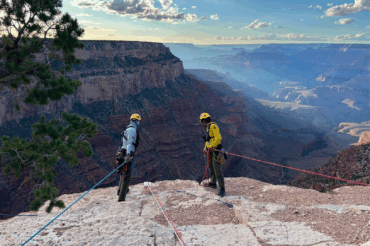The House GOP voted to ease restrictions that prevent Congress from transferring federal, public lands to state authority.

On day one of the new Congressional session, House republicans asserted their majority. In a 233-190 vote Tuesday that passed largely along party lines, the House changed the rules that govern how Congress hands over federal lands to state control.
The move immediately drew criticism from democrats and environmental groups.
“Right out of the gate, Congressional Republicans are declaring open season on federal lands,” Alan Rowsome, senior government relations director for The Wilderness Society, said in a statement. “This move paves the way for a wholesale giveaway of our American hunting, fishing and camping lands that belong to us all.”
Rule Change: What It Means
The rule change affects protocols that have historically inhibited Congress from transferring or selling public lands.
#Congress has wasted no time in getting to work on the seizure of your #publiclands. ACTION NEEDED to #keepitpublic!https://t.co/PkIb2JYlS7 pic.twitter.com/FXe6HtbtoS
— Backcountry Hunters (@Backcountry_H_A) January 4, 2017
Under old rules, Congress had to account for the monetary loss of giving away federal lands that generate revenue for the U.S. Treasury. No transfer could be authorized until Congress balanced its books with the Congressional Budget Office.
The new rules remove that requirement. No longer can a budgetary point of order be used to block the transfer of protected parks, streams, or recreation areas.
Trump Nominee Under Fire

Results of the vote incited outrage at one House republican in particular. Rep. Ryan Zinke, R-Mont., president-elect Trump’s nominee for secretary of the Interior, voted for the change.
He has prioritized development of oil, gas and other resources on public land and has advocated for state control of energy development on federal land, the Great Falls Tribune reported.
Rep. Zinke’s website states that he “believes we need to find a way to cut through the bureaucracy to ensure our parks, forests, and other public areas may be properly maintained and used effectively.”
Speaking on his behalf, Zinke spokeswoman Helen Swift told the Tribune his stance has not changed.
“I have always been a strong supporter of public lands, and have voted against the transfer or sale of public lands.”
Transferring Federal Lands: The Debate
Zinke’s position, like many conservatives, is that the federal government is a poor manager of public lands. As noted on his website:
“The amount of red tape surrounding the federal government’s management of lands directly hurts Montana. [W]e need to find a way to cut through the bureaucracy to ensure our parks, forests, and other public areas may be properly maintained and used effectively.”
Republicans also note that federally protected areas can be a bane to communities abutting or near those lands.
In a statement, House Natural Resources Committee spokeswoman Molly Block said that “in many cases federal lands create a significant burden for the surrounding communities,” as they generate no tax revenue and are at times “in disrepair.”
Democrats and environmentalists counter that the rule change and any subsequent land transfer paves the way for states to sell protected lands to the highest bidder.
@TheTRCP just added my name to this list, there is nothing more beautiful in this country than OUR public lands #publiclands
— Peter Charles (@PeterCharles6) January 4, 2017
“Right out of the gate, Congressional Republicans are declaring open season on federal lands,” Rep. Raul Grijalva (Ariz.), leading Democrat on the Natural Resources Committee, said in a statement preceding the vote. He went on:
“This is not Theodore Roosevelt-style governing. The House Republican plan to give away America’s public lands for free is outrageous and absurd. This proposed rule change would make it easier to implement this plan by allowing the Congress to give away every single piece of property we own, for free, and pretend we have lost nothing of any value.”
Republicans will control both the executive and legislative branches in the upcoming administration, beginning Jan. 20.







